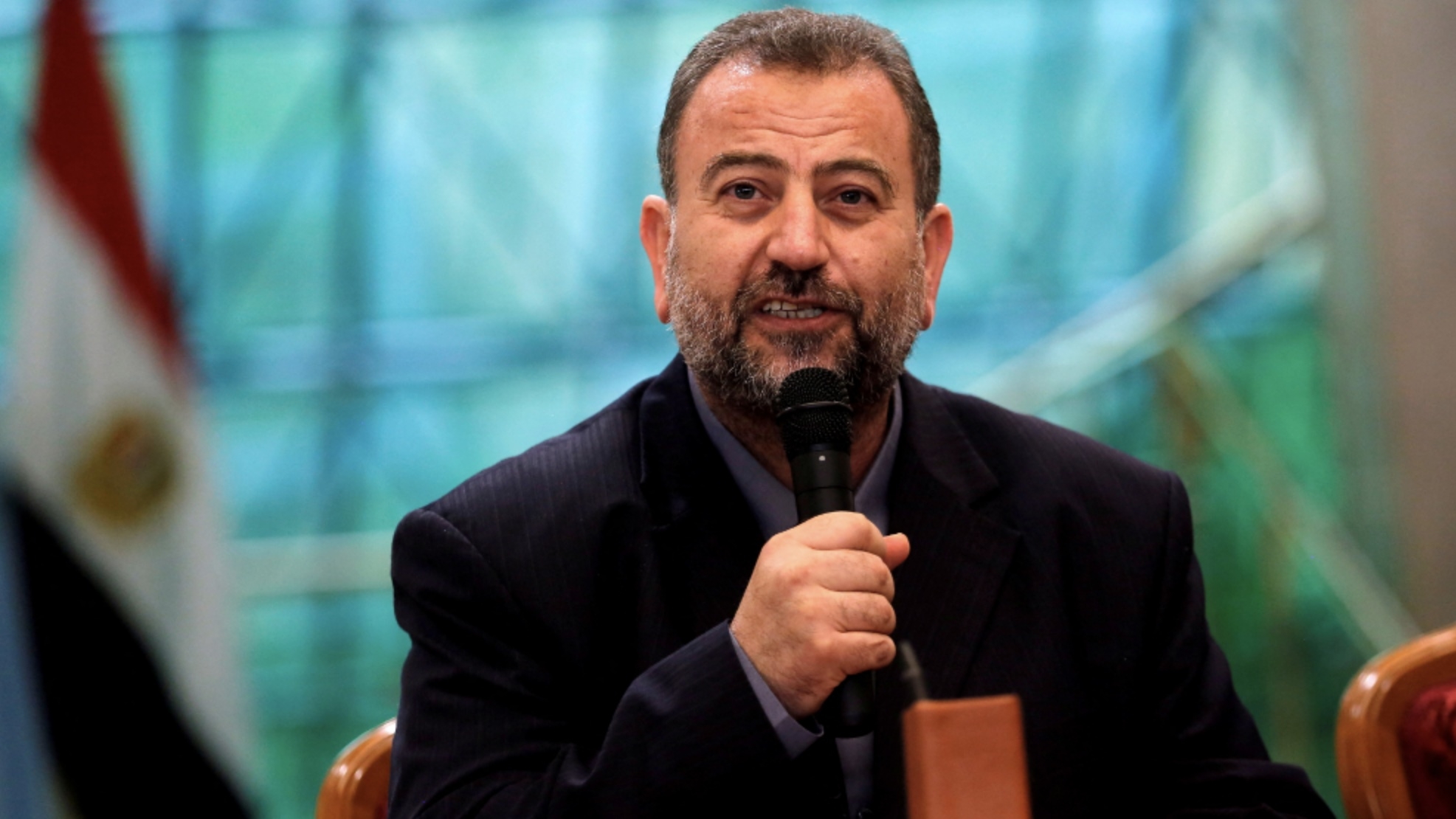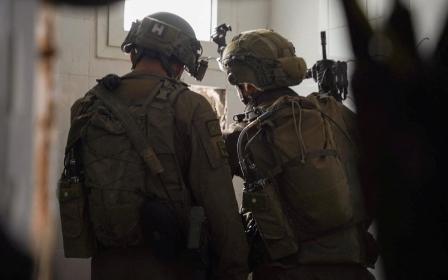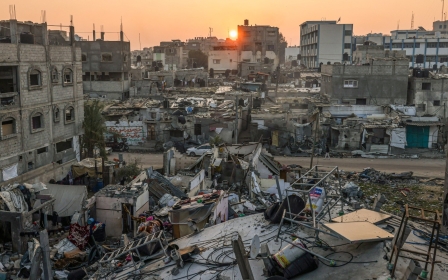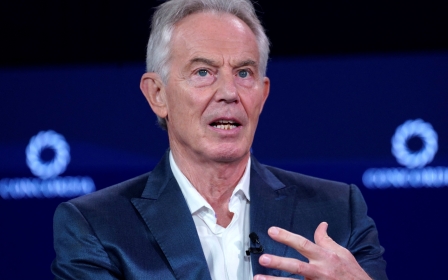Hamas leader Saleh al-Arouri assassinated by Israel in Lebanon

Israel killed senior Hamas official Saleh al-Arouri in a targeted attack in the Lebanese capital on Tuesday, heightening the risk of a wider conflict amid Israel's devastating offensive on the besieged Gaza Strip.
Izzat al Rishq, a member of the Palestinian movement's political bureau, said Arouri was killed in a "cowardly assassination" by Israel, and warned such attacks would "not succeed in breaking the will and steadfastness of our people, or undermining the continuation of their valiant resistance."
"It proves once again the abject failure of this enemy to achieve any of its aggressive goals in the Gaza Strip," he said.
Ismail Haniyeh, the head of Hamas' political bureau, also slammed the killing and compared it with the assassination of other senior Hamas leaders, including the group's founder, Sheikh Ahmed Yassin, in 2004.
"The assassination of the leader al-Arouri and his brothers by the occupation is a fully-fledged terrorist act, a violation of Lebanon's sovereignty, and an expansion of its aggression," Haniyeh said.
New MEE newsletter: Jerusalem Dispatch
Sign up to get the latest insights and analysis on Israel-Palestine, alongside Turkey Unpacked and other MEE newsletters
Lebanon's state-run National News Agency said the blast in Beirut's southern suburb of Dahiyeh was carried out by an Israeli drone. Footage shared on social media showed the burnt-out wreckage of several vehicles in southern Beirut, as crowds gathered nearby after the attack.
Dahiyeh, where the explosion took place, is a largely residential neighbourhood but also serves as a stronghold for the Lebanese armed movement Hezbollah.
In a statement late on Tuesday, Hezbollah said that the attack, which also killed two commanders from the al-Qassam Brigades, was a "serious assault on Lebanon" and that the group had "its finger on the trigger."
"The criminal enemy which after ninety days of crime, killing and destruction was unable to subjugate Gaza is resorting to a policy of assassination," Hezbollah said.
Lebanese Prime Minister Najib Mikati also condemned the explosion, calling it a "new Israeli crime".
Hours before Arouri’s killing, Turkey detained 33 people who it alleged were spying on Palestinians on behalf of Israel's Mossad intelligence agency.
Last month, Ankara warned Israel against plotting to kill Hamas members in Turkey, following reports of plans to target the group's leaders overseas.
The killing sparked protests that engulfed the occupied West Bank on Tuesday, and protesters also thronged the streets of the Jordanian capital Amman.
So far, the Israeli army has refused to comment on Arouri's assassination, but said its forces were "highly prepared for any scenario".
"The IDF [Israeli army] is in a very high state of readiness in all arenas, in defence and offence," Israeli military spokesman Daniel Hagari told reporters.
"The most important thing to say tonight is that we are focused and remain focused on fighting Hamas," he added.
Israeli government adviser Mark Regev also stopped short of confirming Israel had carried out the attack, but he told MSNBC: "Whoever did it, it must be clear that this was not an attack on the Lebanese state.
"It was not an attack even on Hezbollah, the terrorist organisation. Whoever did this did a surgical strike against the Hamas leadership. Whoever did this has a gripe with Hamas. That is very clear."
Israeli officials have repeatedly vowed to attack Hamas leaders outside of the occupied Palestinian territories, including in Lebanon, Qatar and Turkey, following the 7 October attack on southern Israel.
In November, Israeli Prime Minister Benjamin Netanyahu said he had instructed Mossad, Israel's intelligence service, to "assassinate all the leaders of Hamas wherever they are".
In early December, a leaked recording revealed Ronen Bar, the head of Shin Bet, Israel’s internal security agency, telling Israeli parliamentarians that Hamas leaders would be killed "in Gaza, in the West Bank, in Lebanon, in Turkey, in Qatar, everywhere … It will take a few years, but we will be there in order to do it."
Who was Saleh al-Arouri?
Born on 19 August 1966 in the occupied West Bank city of Ramallah - when it was still under Jordanian control - Arouri worked his way up through Hamas starting with student politics at Hebron University. Later, he was one of the founders of the movement's military wing, the al-Qassam Brigades.
He spent 18 years in Israeli prison before being released in 2010 and deported to Syria.
Arouri lived relatively freely within Beirut, but he was placed on a US terrorist list in 2015 and had a $5m bounty on his head by Washington.
According to a New York Times report, Arouri was responsible for strengthening ties with both Iran and Hezbollah, visiting Tehran to meet the head of Iran’s Supreme National Security Council. He also expanded the military infrastructure of Hamas within Lebanon.
Last month, Arouri told Al Jazeera Arabic that Hamas would not discuss a prisoner exchange deal before Israel ends its offensive on Gaza, which is currently in its 88th day.
"The resistance is ready for all the military scenarios," he said. "There is no fear or worry for the resistance. It will win."
Middle East Eye delivers independent and unrivalled coverage and analysis of the Middle East, North Africa and beyond. To learn more about republishing this content and the associated fees, please fill out this form. More about MEE can be found here.




